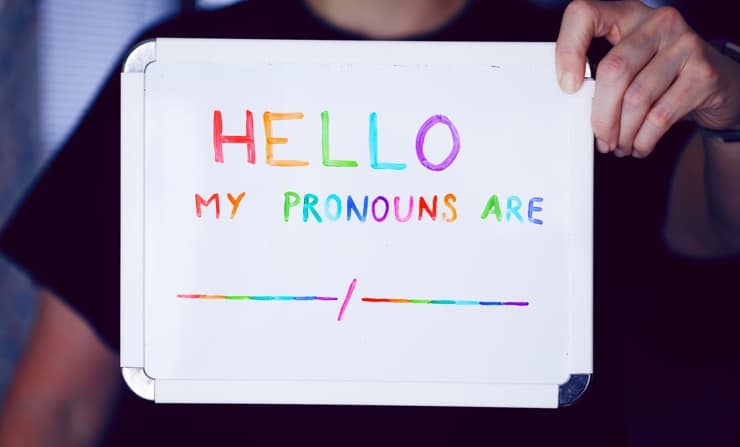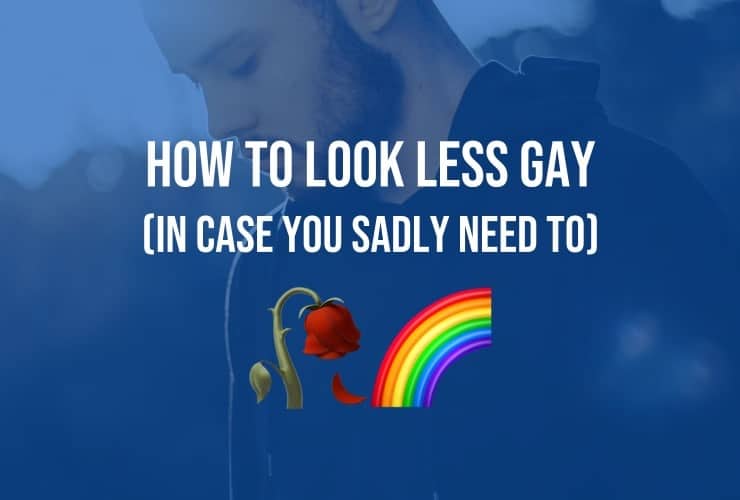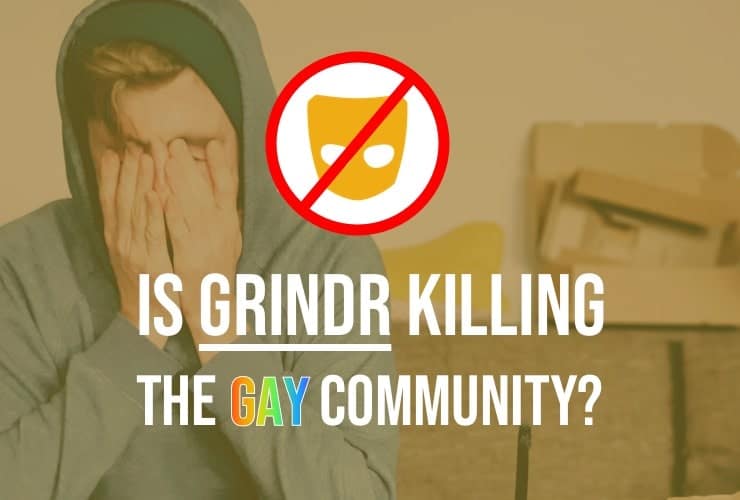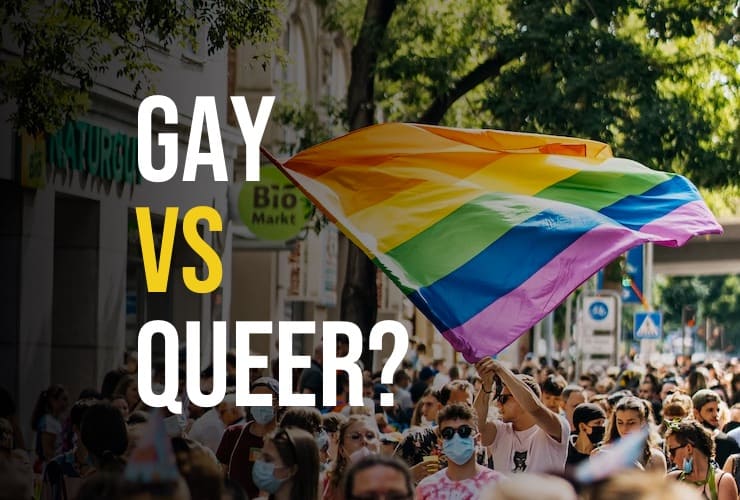Coming out as gay is personal choice. In today’s environment, coming out is getting easier in a lot of places, however, it remains a deeply intimate choice how and when you come out to others. In the work environment, coming out feels especially delicate as the people at work are not always like-minded or similar to your friends or spaces of community. People fear that being outed at work can have negative consequences such as losing a job, status, or the feeling of acceptance.
The term outing describes the disclosing of someone else’s’ sexual orientation or gender identity without their consent. It has the potential to be harmful to the person they out, whether or not it is intentional. A queer person should be able to choose how and when they come out to others and especially in a work environment as it contains the added layer of professionalism, work-life balance and boundaries.
You might be in a situation where you are afraid that someone at work might out you, or maybe just wondering what would happen if someone did, in this article we will talk about getting outed as gay at work and the consequences of such actions. We will look at the pros and con’s of being out as gay at work and the importance of knowing your rights as a queer person in the workforce.
What To Do If Someone Outs You As Gay At Work
No matter the reason, someone should never out someone else. It’s an invasion of privacy. Getting outed might feel like someone took control over your situation and you might feel powerless. If you have been outed at work, I send you love from the bottom of my heart.
First, we empower you to observe the situation. Do you think the person outed you for malicious reasons or was it casually mentioned without harmful intent? If someone outed you to cause harm it can be very frightening. It can be overwhelming and you might not know how to handle it. It’s totally normal to worry about the consequences and how other people will react to it.
In these cases, know that you are not alone and the tough times will pass. You will find people who will support you and help you. We recommend reaching out to online organizations such as It Gets Better, who can provide you with the help of experienced and trained staff who are dedicated to navigate difficult times with you.
We also recommend you take personal notes of the outing. In your notes, write down what was said or done, by whom, and anyone who heard or witnessed the act. This will help you build a case if you ever need it. If you desire, you can go to your Human Resources Department (if your company has one) and tell them immediately. They also might have resources and a protocol they want to follow for these situations.

Is It Illegal To Out Someone As Gay?
Getting outed as gay at work is highly unprofessional and inappropriate of the person who outed you. However, outing someone is not illegal (at the moment) in the majority. There are some cases in which outing someone is illegal and it depends on the person. That being said, discrimination due to sexual orientation in the workforce is illegal is most countries.
We recommend finding out the laws and rights you have as a LBGTQAI+ employee. Every country and state is different, so you’ll have to look up the rules yourself. A good way to find out is to Google “[your country or state] nondiscrimination laws”.
The cases in which it is illegal usually are if a person in power discloses your sexual orientation or gender identity such as a boss, superior or trusted government employee. If someone in a power position such as this outs you then we recommend looking into reporting them. One example is that a school is not allowed to out a student to their family or caregivers. Unfortunately, this law is changing in some states. Florida is trying to get rid of this law with the their “Don’t Say Gay” propaganda, giving teachers the right to inform parents if their kid is gay or queer in class.
Can Your Boss Ask If You’re Gay?
In the United States an employer cannot directly or indirectly ask if you are gay at work and you are not required to disclose your sexual orientation to anyone. However, in some other countries, cities, or places of work it would be highly inconsiderate to ask, but not illegal. Do your own research to find out what is allowed or not allowed.
A good way to respond to your boss (or anyone else) questioning your sexual orientation is to ask why your sexual orientation is at all relevant to anything to do with work. Some companies may ask (anonymously) about someones sexual orientation in a LBGTQAI+ survey for inclusion reasons or pride month related stuff, but those questions are definitely not mandatory to fill in.
If another employee asks you if you are gay at work, you have every right to ask them why they are curious or respond by saying, “That is a very personal question.” Depending on the person and their intention you may want to note this circumstance. Most of the time people are just curious and want to get to know you better. However, like I wrote in my article “Is It Okay To Ask Someone If They Are Gay“, some people don’t approach the topic of sexuality in a comfortable way. This doesn’t mean they have any ill intent.
Disclosing That You Are Gay At Work
Between 35% and 55% of the people who are LBGTQAI+ don’t disclose their sexual orientation or gender identity at work because of fear of discrimination, according to Stonewall research. A lot of LGBTQIA+ employees still find it hard to let their guard down, because even though the current policies make it illegal to discriminate someone because of their sexual orientation or gender identity, they can’t legislate how someone feels or acts towards you once they know you are gay.
That being said, more and more people are out at work though. Some people casually mention that they are gay during the interview stage by saying things like, “Me and my husband love going on hikes on the weekend” or, “When me and my boyfriend moved here two years ago.” Others prefer to wait until they get accepted for the job to let others at work know their sexual orientation. For some, they prefer to see how their colleagues, bosses, and the internal team treat queer folks. They might observe how they talk about queer folks in their lives, the news, or on tv before choosing to come out.
With the surge of Pride and global acceptance, companies are becoming more upfront about the acceptance of sexual orientation and gender. They might have inclusion values that they write about it on their website, or you can check the corporate quality index 2022 to see if your company has registered.
Another good thing to notice is whether or not your company has a place for sharing your pronouns and whether or not people are using this on their email signature. It is a really easy way to gauge allyship in a company culture.
Ultimately, it’s really up to you if you decide to be out at work. It is also up to you how and when you do so. There is no structured timeline or ideal way of sharing this part of yourself. Making sure you feel safe is always the most important.

The Joy Of Being Out As Gay At Work
Being out at work can have professional, social, and emotional consequences but not being out also has consequences. Hiding your sexual orientation and true self can be exhausting and take away from the fun connections that could be had at work.
People who are out at work noticed a great reduction in stress after not needing to keep their sexual orientation a secret according to research. Additionally, queer folks who are out at work have a higher chance of being promoted. The reasoning behind this could be that the reduced stress (of not hiding your true self) allows for better work and greater confidence. Think about it, “acting straight” for 8 hours a day is another full time job– potentially taking away from your work.
Coming out at work looks very different for everyone. For some it can simply be correcting someone on their assumption that you are straight, for example, if they ask you if you have a wife. Others prefer to announce it a bit more directly or by talking loudly about their great date on Grindr. However you want to do it, it’s your choice.
Being out at work makes it easier for other people to come out too. You might have someone who is already out at your office, making it easier for you. If you are the trailblazer at your job, more power to you, you might be inspiring others.
October 11 is National Coming Out Day. One of the core beliefs of this holiday is that homophobia and shame thrive in silence. Coming out as who you are is an important act for self recognition and activism. Being visible is important, whether you are a queer person yourself or an ally.
Outing Someone Even If You Are Queer Or Gay Yourself
If you are out at work and comfortable, that’s great! However, this does not mean that everyone feels this way. If you suspect someone is gay, asking them point blank, “Are you gay,” is kind of like asking, “How much money do you make at your job?” Generally, it is considered a very gauche thing to do.
Who someone has sex with is none of your business. If you are interested in dating someone and you are not sure what their sexual orientation is, there are better ways to find out.
If someone does come out to you, don’t be afraid to ask about their preferences about who knows and if they are out to the rest of the office. This way, you will not accidentally out them. Additionally, if you want to only come out to a few people, you can also tell people that you wish that only they know this information and ask them not to share it.
You Get To Dictate Your Own Story
Whether or not you are out as gay at work should be completely in your control. In some unfortunate cases, others may intentionally or intentionally out you at work. If this happens, we send our love to you. Seek help from resources, your friends and family and the human resources organization at your work.
If you want to come out at work, you can do as you like. You can come out to a few people or to everyone. Keep your peace and safety as your most important treasure. Sharing your true nature can be very liberating, but only if you feel safe and comfortable to do so.







